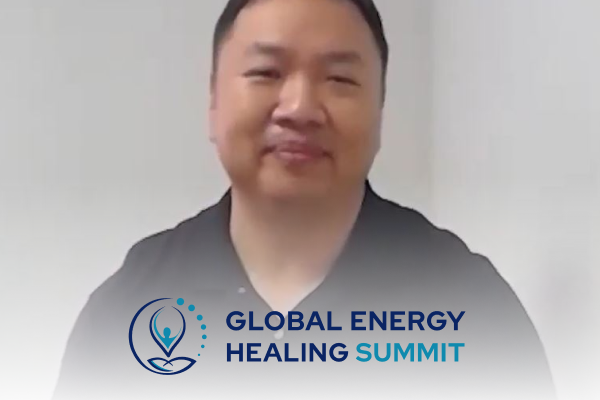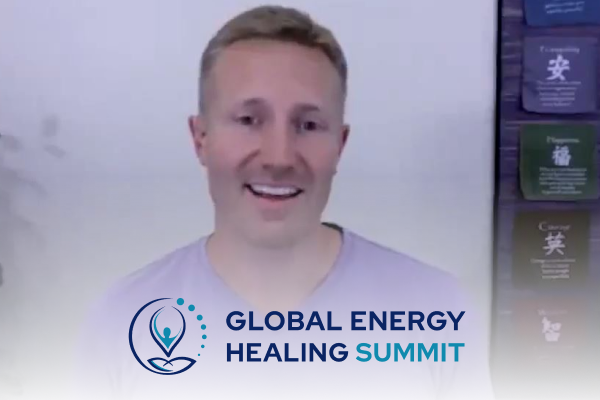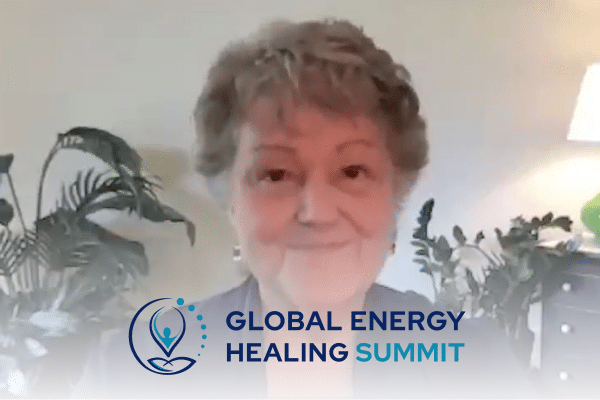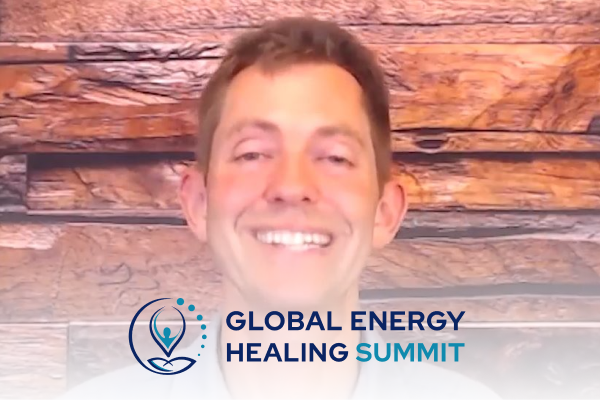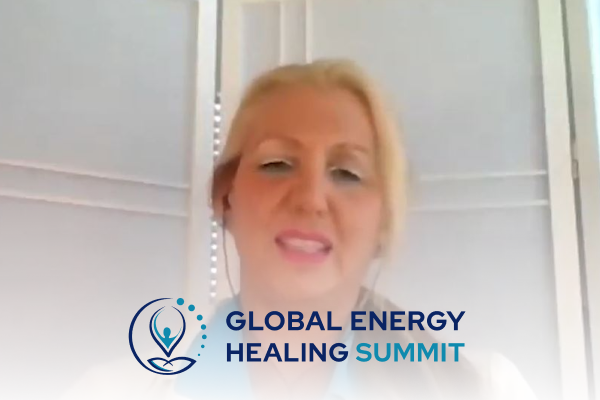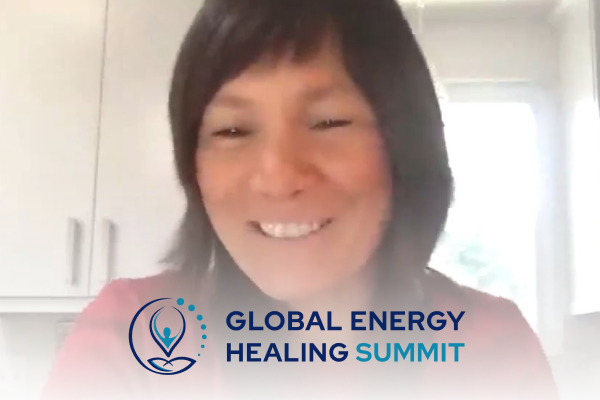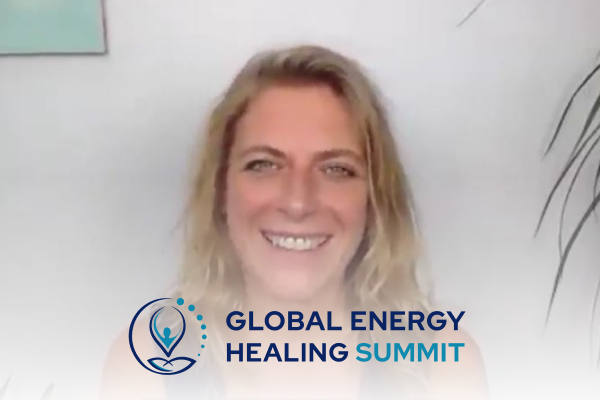Join the discussion below
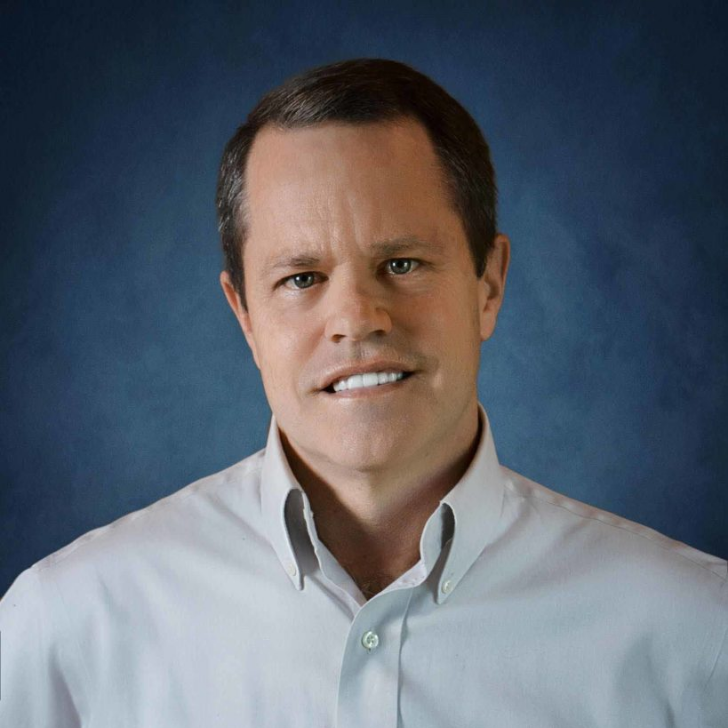
Tom McCarthy is a husband, father, author, speaker, entrepreneur, and investor who has owned businesses in the training, software, financial services, and restaurant industries. Tom’s clients in his training business include some of the worlds leading companies such as Cisco Systems, Microsoft, Salesforce, Wells Fargo, and MetLife. His latest book,... Read More
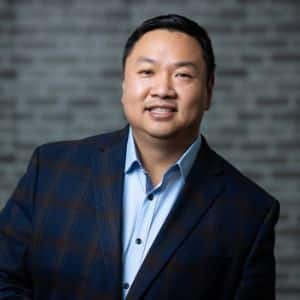
Dr. Ruan is the Founder and CEO of Texas Center for Lifestyle Medicine. He devotes his career in practicing and building systems that allow for efficient delivery of healthcare. He is a board certified internal medicine physician but also have advised with companies to improve their workflow, company culture, marketing,... Read More
- How energy medicine relates to conventional understanding of medicine.
- Why energy medicine works.
- How energy medicine may be the missing link to chronic illnesses.
Related Topics
Blood Pressure, Brain Circuitry, Brain Waves, Chronic Illness, Eastern Philosophy, Energy, Energy Medicine, Functional Medicine, Grounded In Science, Hormones, Integrative Health, Medical Errors, Pharmaceutical Drugs, Prolonging Life, Science, Side Effects, Texas Center For Lifestyle Medicine, Western MedicineTom McCarthy
I am so excited about the person you’re gonna get to hear from right now. I’ve only known him about a year, I actually met him last year in March at a conference that he had flown in to speak at and I was there too and I had heard a little bit about him, because he’s got lots of fans that are people that I know that are friends, but I was blown away when I saw him get up to speak, because not only was he a conventional doctor, an MD and specializing in internal medicine, what he had done is he had also learned functional medicine and created a huge clinic in Houston and was helping a lot of people that were friends of mine, they were going to him and literally like amazing things were happening in their life. But, I got a chance to experience that, I got a chance to see him speak, see him talk.
He also, our guests Dr. Cheng Ruan, MD, was just voted and I just found this out, was just voted the top internal medicine doctor in all of Houston and it’s interesting because, it was voted on by other doctors, conventional doctors, which, you know you have to be really amazing Cheng to get them to vote for you in light of the way that you practice medicine, which is Western, but also integrating some Eastern practices, which we’re gonna talk about today, energy medicine and functional medicine, so I’m so excited to have you here. He also has become, by the way, my go-to MD. I love the fact that he’s got education in traditional Western medicine, so I know that he’s a scientist, he’s gone down that road, but the real reason I call him is because he’s got an open mind and so if I’ve got a question on a supplement, or if I’ve got a question for a family member of mine, or anything happening for me health wise, this is my go-to doctor, so I’m really excited to introduce him to you and so Cheng, welcome to the Global Energy Healing Summit, thank you so much for being with us.
Cheng-Huai Ruan, M.D.
Thanks Tom, what a fabulous introduction, I’m pretty humbled by that and really wanna thank you for having me and we’re gonna have some fun today, talking about some of my favorite topics, so I can’t wait.
Tom McCarthy
Awesome. And I asked you to start with a little stat, I gave him a little heads up, what’s something that might even be a little bit shocking, but what’s one reason why we should really pay attention to what you have to say today?
Cheng-Huai Ruan, M.D.
In 2016, the British Medical Journal published this article and it says that medical error is the third leading cause of death in the United States. And so, back in 2016, that was a shocker for me, because I didn’t really know what to make of it and what I really found out through that experience, and that journal is one of the propelling things that launched me into integrative health and functional medicine.
Tom McCarthy
Yeah. So, in case you missed that, medical errors are a huge cause of death, things that people go in to see their doctors for and they get prescriptions, end up killing them, that’s pretty crazy. And so, we’re going to listen to a doctor that was inspired by that and literally changed his practice so that he wasn’t gonna be part of that, he was gonna be part of truly healing people. Well, you’re gonna give us a lot of information around energy healing and ways we can, things we can do to implement that in our lives, what’s the hope at the end of this call, what’s the big promise here that at the end of this, I call it a call, but at the end of this little interview, what are people gonna be able to do, how are they gonna be able to think, what do you wanna make different in their lives?
Cheng-Huai Ruan, M.D.
People are gonna be absolutely empowered by the end of this interview, because there’s so many things around us that consists of energy, but we use different terms, but it’s on a daily interaction, with our friends, with our family and there’s so much control over your own health and I will love for people to know that.
Tom McCarthy
I love that, control over your own health, everybody, that’s what you need. So go back to your, you had this traditional Western medicine education, although you did grow up with a mom, who’s a very famous acupuncturist and treats lots of celebrities, so you had some of the background in the Eastern philosophy, but you were going along practicing as an internal medicine doctor going the traditional path, you said you saw that statistic back in 2016. That was a huge risk though, to make a change, you had a nice practice, you literally, you did almost a 180, like, what gave you the courage to make that change?
Cheng-Huai Ruan, M.D.
Well, so my mom is a very famous Chinese medicine doctor, acupuncture, herbal therapy. But my dad is just as famous, he’s an MD-PhD, he’s currently one of the deans of pharmacology, University of Houston, so, I had science throughout my whole life and I’ve always tied together the Eastern Western philosophies, so it was normal for me, the problem is, when I finished my residency out in New York and the NewYork-Presbyterian Queens, got into private practice, it just wasn’t as rewarding, because a lot of people were coming, getting the prescriptions and whatnot and the system in the United States is not really designed to create this communication integrative mindset.
So, the risk that I took was really understanding why was it that, that statistic we talked about the very beginning, no medical errors was creating such a huge effect on the country and so at that time, I was in, I was doing outpatient medicine primary care, I was also doing critical care medicine in the hospital and I was a hospice and palliative care doctor and I was also a sports medicine doctors, so I saw people from when they’re very young to their deathbed and so, that variety gave me this massive appreciation for life, that people may think, well, what’s sports medicine have to do with intensive care, have to do with hospice medicine, well, the energetics are identical and we have to respect that and I learned that from my mother. And so, thinking about how medical errors are really creating a detriment in the country, I really had to dig deeper on why that is.
Tom McCarthy
Yeah. I love that, I love that. And so, energy medicine, a lot of people think ,it’s kind of out there, not people listening, hopefully to this interview, because you came here for a reason, but many people think it’s a little weird, it’s out there, it’s airy fairy, you actually ground it in science, ’cause you’re a scientist, I mean, first and foremost, you wanna do things that work, that will cause great effects, talk about the science of energy medicine.
Cheng-Huai Ruan, M.D.
So, I want people to understand that the word science, let’s just kinda define what that is, science is something that can be traditionally proven in a concept that’s usually very material, something that’s tangible. The problem in America is that science has been deep rooted in the fundamental algorithms to validate pharmaceutical drugs, we’ll call that a double-blinded randomized controlled trap. And so, the idea is that you know what, we’re gonna change one variable and see how it affects other things over a period of time and we’re gonna validate that drug. That’s not how our body works and in fact, if you look at how medicine is practiced, most of the medications that we give for that one effect has a ton of side effects, right ? So, these pharmaceutical commercials at 8:00 PM at nighttime, they go on through all the beautiful sceneries, you see all the side effects, those side effects is coming from one of the mechanisms of the medication, that’s huge downstream effects.
And they’ll list multiple side effects, but I call that energetics of change and all those side effects are basically little names that define the energetics of change. And so, here’s the real deal and most doctors don’t like to about this, but a majority of the medicines that the doctors prescribe do not prolong life. Is that surprising? And so, I’ll give you some example, this blood pressure medicine in different classes, some classes do prolong life, most of them don’t. Is cardiovascular medicine, in some people it prolongs life, but most of them don’t, right? And then there’s diabetes medicines, some prolong life, but most of them don’t and so the question is like, why are these drugs made for these specific purposes? Because the way that medicine defines success is a little messed up, it has nothing to do with necessarily just prolonging life, but with some number that they’re trying to hit, right? Cholesterol medicine, one of the great examples.
Cholesterol medicine, you can get the numbers down, but does it prolong life, well, not really, we don’t know. In some people, it can hurt them. And so, understanding that, well that’s why medical errors can lead to high causes of death in the United States. But here’s how I defined energy medicine, I think we have to have a overarching understanding of what energy medicine is. If you think about it, if you walk into a doctor’s office and someone slaps a blood pressure cuff on your arm, he squeezes it and the blood pressure is registering a very high number because you’re either very scared, or something like that and then the doctor said, “Well, your blood pressure’s high, let’s test it again,” test it again, it’s still high, “Well, let’s put you on some medications” and that’s usually the end of the story for the next 90 days, until the doctor sees you again, right? Well, no one’s really looking at well, what is your blood pressure trend and all these different things.
What causes your blood pressure to trend up and down has to do with your daily interactions and the energy of it, okay? Well, let’s say you just waking up in the morning and you’re going to breakfast, but you’re in a hurry, so you have no time, blood pressure’s creeping up, your heart rate’s creeping up, your hormones are creeping up, the energetics of it came from intention, the intention to get somewhere quickly and bypass some thing that is supposed to slow you down, but because you’re slowing down, you don’t wanna do it, although that something is just so important, right? And so that some thing is an intention, so the beginning of all energy is an intention.
So, if I say, hey, I intend to slow down, sit down, relax with my family on a daily basis, that’s my ritual routine, then guess what, your blood pressure’s not gonna be up, your heart rate’s not gonna be up, right? And your hormones are gonna be relatively balanced and your brain waves are gonna be balanced, so these are things that we can now measure and in fact, at Texas Center for Lifestyle Medicine here in Houston, that’s what we do. We put people in really cool brainwave activity machines called qEEG and the device is called BrainView and we actually literally will look at what their brain is doing for the next 24 minutes, if they’re going to focus on something, we tell them to calm down and some people are so primed to skip over things that slow them down, their brain is in the circuitry and that circuitry is the energetics behind all this.
Yeah, brain circuitry can create the blood pressure issues, the blood sugar issues, the thyroid issues, the adrenal issues and whatnot and these are all just different names that we have to describe phenomenon of energy with a huge downstream effect. So, that’s what I like to define as energy medicine first. And then, we can prove that this actually is the case, so Tom, this is something that I like to tell people and they’re always very surprised. So, up until three months of age, an infant can synchronize the heart rate as well as brain frequencies with her mom, just like.
Tom McCarthy
Wow. Yeah.
Cheng-Huai Ruan, M.D.
So, how do we describe that in conventional medicine, well we really can’t, something that happens, right, there’s energetics for this, right? I can also tell you that in animal models, you can actually transfer memory from one animal to another by giving the animal its own RNA. So, once the transfer’s over, the other animal starts adapting behaviors of what the first animal learned, okay? We’ll call it the mRNA translation, so what that means is that knowledge can be passed on, that’s the energetics of it. In science, we call this epigenetic expression, so there’s genetics, your genes that you’re born with and then epigenetics means outside the genetics, there’s something affecting the gene expression that is learned, that is exposed and that’s what energy really is.
And so, we take a look at that and we say, okay, well, we recognize that exists, well, what are some things in conventional medicine side that has already been FDA approved to treat people using energetic medicine? The best example I can give you is TMS, which is transcranial magnetic stimulation, which has helped thousands, hundreds of thousands of people through depression, through obsessive compulsive disorder, right and it’s usually, it’s magnets affecting one particular area of the brain, that’s the energetics of it, right? And I can tell you that three years ago, there’s someone who looked at courses of people who have little bundles of connective tissue under points and these points correlate, 80% of the points correlate with acupuncture points they found 5,000 years ago and they find these are connected along these highways, which acupuncturists call meridians.
So, these are physical bundles we can actually see, what’s called the extracellular matrix, okay? So, you have so many things that are deep rooted in evidence that we can see and we’re correlating to the energetics of medicine. So, I think that we’re in a field that’s wildly acceptable, we’re also in a field that people can change the energetics within an instant and that’s what’s really exciting.
Tom McCarthy
I love that and I love the example you started off with too about blood pressure, ’cause how many people around the world have gone in, they’re already a little nervous to be in the physician’s office, their blood pressure’s up, right, the doctor tells them “Calm down,” but they’re still in the office and now they just heard my blood pressure’s up, so it’s still up and then immediately the fix is, take this pill and also, which is a very weak way to try and fix an energetic problem, as you described blood pressure is, there’s times during the day when everybody’s blood pressure’s a little bit up, like when you’re exercising, your blood pressure is gonna go up, but it comes back down.
And so now, somebody not only is told, take a pill, but they’re told by an authority figure, you’ve got high blood pressure, so now they adopt that energetically and probably recreate it every time they come back in and the mechanism that’s being treated is not, it’s treating the symptom, not the cause. I love the fact that you’ve identified that, ’cause I know a lot of people listening to this probably have struggled with that, or cholesterol, or different things they’ve been told that they don’t have any control over. Take this pill, it’s the only hope. The thing that scares me is when I watch these, I’m watching a sporting event on TV and then drug commercial after drug commercial and it makes it look like, hey, this is pretty cool and then as you said, they do the side effects.
Oh my God, you listen to some of these side effects, it’s like, who would take that fit? Like who, it’s just crazy, so, love the examples and I love how you really have kind of talked about too, there’s a science to energy, just like. I mean, even these pills are impacting your energy at the end of the day, but in a way where they’re probably weakening you, because it’s dealing at a top level, what is the, what’s the most important thing you’ve learned and since you’ve switched over to functional medicine, what’s the most important thing you’ve learned about people’s mindsets and how they can be influenced to help cause a shift in energy?
Cheng-Huai Ruan, M.D.
The placebo is the most powerful weapon against disease.
Tom McCarthy
Yeah, I thought you were gonna say that, yeah. So, talk about the placebo and the nocebo effect a little bit.
Cheng-Huai Ruan, M.D.
I’ll tell you what, I’ll break it down, it’s really simple. In pharmaceutical studies, we know that if someone believes that this is real, there is an effect on it. So, the study that was done in 2017 looked at thousands of people with osteoarthritis, which is basically bone on bone arthritis, I think it’s of the knee and then they’re all diagnosed with it, they all have imaging that suggests that there’s severe arthritis, but they looked at pills compared to placebo and the placebo had a massive effect on people improving pain. Like massive effect, yet still bone on bone arthritis. As it turns out, not only are they having less pain, they actually have less inflammation. So, there’s other studies looking at and how there’s less local inflammation, which means inflammation in that area where there’s pain, if they believe that this pill, this placebo, is something that’s good for them, so.
Tom McCarthy
And there’s nothing in the pill that was gonna cause that, it was just their belief about the pill.
Cheng-Huai Ruan, M.D.
There’s a lot in the pill, there’s energy in that pill, that pill only has energy because the people who took that pill gave it energy.
Tom McCarthy
Nice, yeah. Great way to explain that, yeah. I love that.
Cheng-Huai Ruan, M.D.
And so, Dr. Joe Dispenza came out with this book called “You are the Placebo” and it’s fabulous understanding of how much control you have over the things that are around you. The problem, Tom, right now, is that the placebo effect is heavily influenced by digital media. So, let’s go back to the blood pressure example, right? So the doctor say, “Hey, you got this high blood pressure, “I wanna put you on a medicine,” so someone goes and looks up online that there’s this medication has all these different side effects, they’re like, “I don’t wanna take it,” there’s already negative energy towards that thing, that pill.
Tom McCarthy
Yeah. Yeah.
Cheng-Huai Ruan, M.D.
They will be forced to take it by their family or by whoever it is and they take it and they’re almost guaranteed to have that side effect. They already know the writing on the wall, right? And then there’s resentment against the family, against the doctor and then the energy just goes kaput, right? Of course, your blood pressure is gonna remain high ’cause you just got pissed off.
Tom McCarthy
Even while you’re taking the medication. Yeah.
Cheng-Huai Ruan, M.D.
And so, that’s how powerful the placebo is, there’s studies looking at people with cancer treatment with placebo. So, there’s people who get the placebo and these group of people have less rates of progressing cancer, because the person gave the energy to the placebo and you take it and there’s a reason it’s going on, but from a pharmaceutical research, they just call it the placebo effect and I’m like, that’s awesome . Give me the effect, because it’s just such a powerful thing. And so pharmaceutical companies says, “This pill didn’t outperform placebo, “so therefore this pills is not effective.” And so I’m looking at it like, man, like, I wanna talk to the placebo group and see what the.
Tom McCarthy
Right.
Cheng-Huai Ruan, M.D.
And so, that’s the true energy that’s behind it, it’s the intention, I intend for this pill with nothing in it, or I don’t know there’s nothing in it, to do well for me and so it happens energetically and we call it epigenetic exchange, epigenetics outside of the genetic and something changes in your gene expression that allows for downstream things to happen, so that’s the opposite of a side effect, it’s really good effect.
Tom McCarthy
Yeah. And so, even when somebody says, I’ve got this cancer gene that’s supposed to cause cancer, I’ve got the heart disease gene, you’re saying, if you buy into that, yep, well, you have the gene, right? You have the gene that’s identified with that in the past, you buy into it, then it will tend to come to fruition, but, if you go, “Hey, I got the gene, but I’m healthy, “I’m strong” and you practice a lot of things that you would teach them to do, epigenetics can cause that gene not to express itself in the way that maybe it did in your ancestors or your neighbor or whoever else.
Cheng-Huai Ruan, M.D.
So, I’m gonna give you a really good example of this and it’s become really clear, so there’s this gene and it used to be called the God gene, because if you have this gene, you’ll live longer, it’s called the Alzheimer’s gene, we call it APOE protein e4, okay? I have one.
Tom McCarthy
That’s the same thing? The God gene and the Alzheimer’s gene are the same thing?
Cheng-Huai Ruan, M.D.
Yes.
Tom McCarthy
Oh wow .
Cheng-Huai Ruan, M.D.
So this example is gonna blow your mind. So the reason it was called the God gene is, they see this emerge about 10,000 years ago in homo sapiens and they said, this gene allows me, the walking man or woman, to mount more of an inflammatory response and at that time, I was barefoot, I’m walking on dung, I’m getting and mosquitoes, that inflammation was beneficial for me. Fast forward, right now we’re in 2021, well, all this inflammation can be detrimental, so you can have over inflammation and now it’s called the Alzheimer’s gene, because you have two copies of the gene, you have over 90% chance of developing Alzheimer’s disease before the age of 75.
And so, okay, so we know that’s the case, but we also know that there’s epigenetics, meaning outside seedling that affects this gene. But lo and behold, APO e4 gene in cardiology is also called the fat metabolism gene and so it probably does affect inflammation, affects fat metabolism, all these different things and so different specialties, look at this in sort of a different view. So, for me I was like, great, we know that you have this genome side, but that’s okay because we can try to optimize everything around it, which is the energetics or the.
Tom McCarthy
That’s gonna , yeah .
Cheng-Huai Ruan, M.D.
And you can not only shut off some of the components that causes you to develop bad things from the gene, but you can, these are all modifiable risks that people don’t understand.
Tom McCarthy
Yeah and it makes total sense, yeah. So hey, you’re talking about, this is so great, when you discovered it you’re like, wow, this is so cool, why is it not adopted throughout all the doctors that are practicing? Why is it still such a tough sell to most of the doctors that people that are watching this interview are going to?
Cheng-Huai Ruan, M.D.
Well, Tom, it’s actually not a tough sell, most doctors know about stuff like this. But, I’m gonna walk through what medical training really is, right, so you school, you learn your stuff and then you have your internship, which is usually do the first year of residency, where you just get thrown in and do a bunch of stuff, you’re just trying to survive and then you go through residency and then maybe you do specialty through a fellowship, the entire sequence, entire line-by-line sequence, there’s curated rules around each step of training and these rules are guidelines. There’s guidelines that are there, that are put forth by different bodies of either the government, or specialty groups and these guidelines are what doctors are supposed to adhere by. If you don’t adhere by, that means you’re going outside the standard of practice and you have liability, like legal liability.
Tom McCarthy
That’s pretty scary.
Cheng-Huai Ruan, M.D.
Yeah. Well, it was meant to protect the public. In reality, you have to look at who’s making the , because the guidelines before 1980, for those people who had heart attacks, they were given drugs that slow their heart rate down, so their heart doesn’t overwork and then lo and behold, the next year, they reversed the guidelines because people were dying more than they were surviving on that heart drug.
Tom McCarthy
Speed it up.
Cheng-Huai Ruan, M.D.
Yes, it’s called IV beta-blockers. So, for me as a young doc, learning the history of that, I was like, wow, this is like standard of practice before 1980 to do this, now like, no, you don’t wanna do that, you wanna leave the patient alone, we learn from mistakes, but why was this so rooted in the center of practice before then? It’s because there’s guidelines that are made and guidelines have different levels of evidence, a lot of them is level evidence E which is expert opinion, you have to look at who the experts are, right?
Tom McCarthy
Yeah .
Cheng-Huai Ruan, M.D.
That’s not what we’re taught to do in medical school, it was like, hey these are the guidelines. So, there’s nothing wrong with the guidelines, right? For the most part of the part, the guidelines are actually pretty good, but there’s different parts of the guidelines that tend to be ignored, for example, the cholesterol guidelines, the new cholesterol guidelines, it says, you should have three months of a lifestyle modification prior to prescribing this drug, how many doctors do you think wait that three months, it’s the very first step.
Tom McCarthy
Yeah, wow. Probably not many, right?
Cheng-Huai Ruan, M.D.
No and people bypass it because we’re not taught in school to deal with people for that first and I’m like, what do we do for the first three months, I can’t prescribe you a drug, I get really antsy and . And so, in integrative medicine and especially in functional medicine, we looked at, okay, well there’s different functionalities we could look, we could look at diet, we could look at all this stuff like this, we’re not trained in it officially, or formally trained in it and so, but that 90 days is a golden period and that golden period establish some really good energetics. What is system, what’s going on at home, are you on intoxicating agents like alcohol, are you have having addictive behaviors like cigarette smoking, whatever it is. And so, these are just barely touched on, but there’s a lot of mind, body medicine that really needs to be practiced for that to be balanced, right? And so, a lot of times I tag my mom and my mom’s an acupuncture at herbal specialists.
Hey, listen, this person has a lot of sugar addictions, what can we do from that side, so I see a lot of successes come from my mom’s clinic and come back we work with them and that’s how we integrate everything together, but there’s energetics to it, right? An acupuncture point into a bundle of something called the extracellular matrix in this tissue place, will release a lot of different things throughout the body and we can actually see that and then saying that, okay, now that you’re more balanced energetically, let’s come over here and let’s talk about the rest, so, what are we looking at from the conventional medicine, so what markers are we looking at and that’s where healthcare is supposed to go and I think we’re heading in the right direction.
Tom McCarthy
I love it. So and you started off with the example of the blood pressure, you look at people differently. You don’t look at just a number on a gauge, you look at that as a being that’s got energy, that something’s being excited in them right now, or they are hurrying too much, I think you said, you also just mentioned something about the energetics of the environment that they’re in, like what’s going on at their home, how important is that, the environments and what’s going on at home, what’s going on at work, does that, explain how that plays into people’s energy and their health.
Cheng-Huai Ruan, M.D.
Absolutely, so whenever someone comes into the office and me and my entire team, I mean, the first question on our mouths is, “Hey, what is your goal?” Like what do you want ? And after we list that what do you want to achieve, it’s like, oh, what are some things that are inhibiting you from getting to your goal? Nine times out of 10 it’s something that home, it’s something with family, it’s something at work and so you know that there’s barriers in which you the patient, perceived to have and most of it is routed in the home, that’s what we wanna talk about first and say, hey, what can I do as a doctor with my health coach, what can I do as a health coach, to help you overcome this barrier, to help you empower you to do the things that are necessary to get you to the next step. So, revealing that is part of what we like to call motivational interviewing, which is this integrative practice in every business except medicine, I feel like and so part of that is in a very short time, understand what people are going through, instead of assuming that you’re coming in and I can prescribe you medicine, I’m sorry. Once you, technically the current center of care in the United States.
So, that, what’s going on is the foundation, if I know that you don’t have a support structure, you don’t have the finances to do it, like why would I even talk about your diet, why would I wanna talk about prescribing you a pharmaceutical drug you can’t even afford, it makes no sense, right? And so, we wanna talk about, okay, before I prescribe your drug, are you okay, what’s going on at home? In 2017, August, we had hurricane Harvey in Houston, just flooded half the city, my house included, when people were coming in and the week after I’m like, we’re not talking about drugs, we’re not talking about diet changes, we’re not talking about any of that stuff, we’re talking about, what are your energetics like, what’s around you right now? And half the people are displaced and living with other people on a second floor, the first floor is flooded and they’re trying to remediate that, right? So, energy. And that and speaking about energy will create trust and that trust will generate even more positive energy and that’s where we see people start to improve, that’s where we see these miracles start to happen. I’ll tell you that, ever since I started Texas Center for Lifestyle Medicine in 2017, which is six weeks before hurricane Harvey, yeah, I’ve seen more success stories in these short years than I have in the whole career and it’s just very bizarre to me, how I didn’t know how to do this, or was taught how to do this and so that’s what.
Tom McCarthy
What are some of the examples of success stories, like what are some of the conditions that since you started the new clinic, you’ve been able to have way more success than you would have in your old practice, just practicing conventional medicine?
Cheng-Huai Ruan, M.D.
Number one is probably dementia, that’s like a bad word in people’s vocabulary. Or experiencing the early onset Alzheimer’s, in reality, there’s environmental things that are going on and Tom, you might be surprised to notice a lot of elderly fake dementia so they can be left alone ’cause they’re still depressed.
Tom McCarthy
Huh, okay.
Cheng-Huai Ruan, M.D.
a dementia evaluation, they will actually test positive on the neuro psych test.
Tom McCarthy
They’re faking it, okay.
Cheng-Huai Ruan, M.D.
And I’m not saying they’re faking it, they actually don’t know they’re faking it, Tom and it’s because.
Tom McCarthy
They wanna be left alone.
Cheng-Huai Ruan, M.D.
Well, they either have like chronic osteoarthritis, chronic pain, they’re frail and they don’t want to deal and be reminded daily of their frailty and it’s , so we create the conversations, right? Hey, you can potentially do X, Y, and Z, all of a sudden they light up, all of a sudden they come out with words that our families never heard before and another thing is that some people even are severe memory loss, or a lot of times they’re stuck, they’re stuck in a memory, where it’s the last memory that they were happy in and that last memory was, I don’t know, World War II, one of my patients and at that time, none of his kids were born yet, so he’s not gonna remember the name of his kids . But what we did is, we went with the energy, like okay, now, let’s go back with you into World War II, what do you see around these days and they worked with my health coach does and we’re able to target things that made him happy and then we bring him back to the present times like, hey, that’s Robert, that’s your kid right there, that’s your son. All of a sudden they have like, oh yeah, of course it is, right? Guess what, the brain is stuck in an energetic of a past, because everything after that point was some level of collective trauma and experiences stored up over time. And so, whenever we did this, we did this without, we didn’t use any medicine or anything crazy, we didn’t use supplements at the very beginning, we just had a conversation, that conversation tap into the energy that they never had a connection before. So, that’s my most powerful example and now.
Tom McCarthy
That’s really interesting, before you go on another one, just to reinforce that, Alzheimer’s is really stuck energy.
Cheng-Huai Ruan, M.D.
Yes, so it’s stuck energy with a physiologic cascade of different things.
Tom McCarthy
Okay, yeah. Okay, interesting, yeah. So, a couple other things that you’ve had great success with?
Cheng-Huai Ruan, M.D.
Yeah, another thing is just autoimmune disease, which in medicine, in medical school and residency, we’re just taught, it comes and slaps you in the face and you get diagnosed with it and here’s some drugs, that’s consensus even among rheumatologists, but in reality, autoimmune disease is, just tells you that you’re kinda going at the speed of life that’s not compatible with your success and so and I’ll tell you what that means, so, really cool example and I’ll never forget this, I had this person and I’m not gonna use any names here without privacy, this person had five children, has five children and two of them are at the top level of their athletic ability in gymnastics, the very top level and then the other three are in TaeKwonDo and different martial arts.
And her life consists of waking up, taking her kids to these practices, coming home and so she spent 16 hours a day outside of the home. And then she’s very healthy and she’s a nutritionist, she’s like, “I’m doing these shakes, “I’m doing these green smoothies” and stuff like that and just like all of a sudden she’s getting these eczema issues, she’s getting like Lucas flares and all that stuff like that. And I’m like and then she did it, with another practitioner, she did some tests looking at food intolerances, she was allergic to like 144 different things. And I’m not exaggerating, it was actually 144, so that’s an actual number. And so and she’s like, I’ve limited myself to these six foods that I can eat, okay? And I just sit down, with my coach who’s right here.
Tom McCarthy
Tough life man, six foods you can eat, right ?
Cheng-Huai Ruan, M.D.
And I’m like, listen, you only know you’re allergic to the 144 different things because someone looked for 200, if I look for six, she’ll be just two maybe. But, the more serious note is like, don’t change anything in your diet, I just want you to slow down. So what she was doing, she was eating a smoothie, she had a blender in her center console in her Honda Odyssey . And she was doing it driving. But what happens is, when you do that, your brain is in fight or flight, it’s like your brain interprets in fight or flight, she’s driving a van, she’s going down in traffic and it’s like trying to drink a smoothie when a tiger is chasing after you, probably didn’t even recognize that.
So, there’s less stomach acid produced, there’s less blood flow to the gut, most of the blood flow are in the shoulders right here and she’s a little tense and then so when the food comes in, there’s not enough stomach acid to digest the food and then your immune system comes and say, “Hey, this is not digested, “so I’m gonna try to digest it with other different things “like bacteria and other parts of the immune response” and that causes acid reflux and it causes autoimmune disorders of the esophagus and causes all these different bad things, the bacterial overgrowth in the gut, bloating, which she had all that stuff, right? But I’m like, you know what, I don’t want you to change anything and she was very upset at me at the very beginning, ’cause I didn’t give her medications or.
Tom McCarthy
Fix me, come on, fix me, right? You usually don’t change anything yet.
Cheng-Huai Ruan, M.D.
I was like, so we’ve got her family and I was like, all I want y’all to do is just support your mom, not allowed to eat in the van, just slow down for two weeks. So in about six weeks, her bloating got better and we redid her food allergy and food intolerance panel from 144 to four things.
Tom McCarthy
Wow. Wow.
Cheng-Huai Ruan, M.D.
Now you have 140 things that you can, like what happened here? She slowed down and that’s the energetics of it. The food was not ingested intentionally, therefore it was creating this immune flares and the bodies are reacting to it, okay? And so, I see that so often now that we’ve stopped testing for food insensitivities until they can prove to me that they actually slowed down, ’cause all I’m doing is a of money, right? And that’s.
Tom McCarthy
But how do you, what are your top two or three tips on slowing down? This sounds like a big deal, that pretty much all of us need to figure out in the life that we’re living. You’re talking about taking the kids, I only got two, but I remember it being super hectic with all the athletic events and different things they’re doing and it’s kind of thrilling when you’re in it, right? ‘Cause you’re moving and then you don’t realize what it’s doing to you, how do we slow down in today’s day and time? What are your top two or three tips on that?
Cheng-Huai Ruan, M.D.
My best tip is to stop the screen time after dark. So, phones, the social medias, because we know that blue light stimulates the wakefulness areas of the brain and I can actually see that on the brain map that we do here, that’s by far the hardest for a lot of people to do. And also, speak your intentions very loud and clear with your loved ones okay? Instead of saying, “Hey honey, pass me the salt,” say, “Hey honey, I would like this to be seasoned “a little better, do you think salt could be “a good addition,” right? And so, there’s different wording that you can say with the people that are around you, just try to just tell people what you’re and the end result you’re trying to achieve is and then by people understanding where you’re trying to go, it empowers other people to give their own energy to you and a lot of energy healers actually, they use that energy for themselves, then try to transfer it to people, so you can see the brainwaves, this sickness sort of low alpha stage was just this nice and calm relaxing and then when someone comes in and is sitting next to them, the brains also all of a sudden goes to this low alpha phase, right? Couples who are really close to each other in relationship, when you putt them on a qEEG, you’re seeing the same, same patterns, that they have identical sleep patterns too, they go into stage one sleep together, stage two sleep, stage three, stage four realm sleep together, these are all things that we see in conventional science, that we don’t know why it happens, but it’s the energetics of it and so .
Tom McCarthy
And so hey, what you just said, ’cause I wanna make sure again people catch this, rather than just pass the salt, or you get the salt, but people don’t really understand what you’re really asking, saying, “I like seasoning,” or you said it better than I did, how could I season this, or could you help me season this or and now people know the next time, “Hey, would you like “some salts on that,” or they’re gonna season it before they even serve it to you and so a lot of people are keeping their true intentions, or what they want, bottled up, which is probably stressful too and then they’re fighting the tide because no one really knows what it is and that person’s not serving you in the way that you would like, you’re probably not serving them in the way they would like, ’cause they’re not expressing it, so what a great idea, what a, such a simple and yet elegant tool you just shared with us, that was awesome, I love that.
Cheng-Huai Ruan, M.D.
Your blood pressure will come down .
Tom McCarthy
Yeah, seriously, because you’re not bottling it up, right? That’s perfect.
Cheng-Huai Ruan, M.D.
And so, another example Tom, is that those people who are actually diabetic, sometimes when they’re blood sugar a little high, I tell them, hey, take a deep breath in and out and then check your blood sugar in a couple of minutes, they come down by 15-20 points, there’s a reason.
Tom McCarthy
By breathing.
Cheng-Huai Ruan, M.D.
Yes. The energy .
Tom McCarthy
That’s awesome. So, how can energy medicine and all this great stuff you’re saying it can heal and I didn’t even, I know there’s probably a ton more you can tell us, ’cause I know you use it in helping people to work through cancer and all sorts of things that you’re getting great results in your clinic with, how can it be combined with traditional medicine? ‘Cause there’s some things in traditional Western medicine, like if you need surgery for a compound fracture, you’ll wanna go in and you wanna do the conventional Western medicine way of healing that wound, putting a rod in it, all those things, probably penicillin and things like that, when there is a really bad infection potentially, maybe I’m wrong on that, but there’s some really good things that we want, the critical care medicine, those type things, how can it be combined though? What’s your vision for the future for this?
Cheng-Huai Ruan, M.D.
It’s really my vision for the current, ’cause that’s exactly what we do here. For lifestyle medicine, you know.
Tom McCarthy
Well, I know you’re doing it, but we need more people to do it, right?
Cheng-Huai Ruan, M.D.
Absolutely. There’s a simple answer to this, we have great energy with each other, we have great energy with other doctors and I do think that’s why I got voted top doc in Houston for 2021, just because I work with the surgeons, I work with anesthesiologists, so we work with, there’s a lot of communication happening on the backend, that transfer information in the backend already supports the energetics of a patient, right? Their outcome’s gonna be better when they go somewhere, they’re gonna be heard more and so, what’s not happening in conventional medicine is that there’s not enough time allocated to speaking.
Now, there’s already not enough time allocated to speak with the patients, there’s also not enough time out there speaking with the family members and their other doctors, it becomes a very difficult place, but there’s changes, especially in 2021, with the new insurance guidelines as set forth by the Center for Medicare and Medicaid Services, to allow communications to happen, unfortunately not a whole lot of doctors know about it, but in the next five years, the way that we practice medicine will change and now there’s using technology, telemedicine, right? There’s using phone calls and digital visits and secure messaging, so these are all things that are finally recognized by insurance providers, so that it could be a center of care across America and that’s where we’re going the next five years.
Tom McCarthy
I love it, I love it. Hey, at the very beginning you gave us that scary thought that doctors, well-meaning doctors, are prescribing things to people that actually are killing them and you said you wanted us to take control of our health. You’ve given us some great ideas on how to do that and one of the ones that just resonates with me big time is slowing it down a little bit, not getting sped up by life and thinking you’ve got no control over the pace you go, we all have control, we’re just not exercising it, that one thing you told us, turning your screen off after dark. Again, it’s gonna be a struggle for some people watching this, but if you do that and that is. It is hard for me too, yeah, so for you.
But when they do start to do that and even if it’s not, maybe right after dark, but they were keeping it on till 10:00 PM and now they start turning it off at 8:00 PM, that’s a huge change, huge change. I love it. Any final thoughts on what you would like to leave the audience with and then at the end I’m going to ask you to also tell people how they can get in touch with you, because I know a lot of people are gonna want to reach out to you and potentially even go to your clinic, but any final thoughts before we get to that?
Cheng-Huai Ruan, M.D.
Yes, the big takeaway, as I said in the very beginning is I want people to be empowered with the fact that they actually have control over their own medicine right? And it’s not just a health issue or illness issue, it’s a life issue and so too long have doctors been trying to separate between life and health and illness. Right now they’re three different categories, but truly it’s not, because they’re all bound by energy. My biggest takeaway for people is that the best and the quickest way you can heal, is to relieve yourself of guilt and opening yourself up to those that around you, by far the best way.
Tom McCarthy
Why relieve yourself of guilt, why is that so important?
Cheng-Huai Ruan, M.D.
Because guilt can create such a downward spiral for people that they get stuck in it and it becomes automatic. And by working on that part of yourself and allowing people to come in, you stop that downward spiral and the energetics will just blossom and day after day, you can start the healing process and it just goes on and it’s fabulous to see when our patients go through it.
Tom McCarthy
I Love it. And how do you heal yourself of guilt, is that forgiving yourself, or what do you recommend?
Cheng-Huai Ruan, M.D.
Man, that’s another three hour talk Tom. But, the easiest way is to write, write down, be honest with yourself, what are you guilty of and then write the things around it, well, what causes it and then what triggers it and like, just doing that alone, cry, tear up, look at the pain, right? And by you crying, the energetics comes out and then you deal with the emotion and then create support structures that are around you, don’t wait for other people to support you, create your own support around you and that’s how you.
Tom McCarthy
And crying is actually letting that energy move through you, get it flowing and I mean, I used to think, how can I cry about something and I used to hold everything in, I gotta be strong and then letting things move through you is so freeing and so amazing, what a great gift you’ve given us. So, how do people get in touch with you if they want to reach out and I know that a lot of people will, what’s something that, or how can they get in touch with you and find out more information about you?
Cheng-Huai Ruan, M.D.
There are multiple ways, I’m all over social media.
Tom McCarthy
Okay.
Cheng-Huai Ruan, M.D.
Yeah. Just look on my name, Cheng Ruan, C-H-E-N-G R-U-A-N MD on Instagram, Facebook and Twitter.
Tom McCarthy
Awesome.
Cheng-Huai Ruan, M.D.
Our clinic website is TX Life Med, so txlifemed.org, stands for Texas Center for Lifestyle Medicine, use the inquiry on there and come check us out when you’re in Houston, Texas, we literally see people from all over the world, from next door over here to Saudi Arabia, so.
Tom McCarthy
Wow.
Cheng-Huai Ruan, M.D.
Yeah, the world is a smaller place with telemedicine.
Tom McCarthy
Yeah, no, absolutely, well, I can’t give any higher recommendation to a doctor then I would give for you, you’re a gift to the world, you really have inspired so many people, including me and help so many people, help my children, my son you’ve helped out, my wife whose mom was suffering, or is suffering, has dementia, you’ve been a huge help for her and so, I just feel so blessed to know you and I’m so glad that you and I were at that conference last year and I got to know you and we’ve had so many interactions throughout the year and I know you’re gonna be a friend of mine the rest of my life, so, thank you so much for being part of our Energy Healing Summit, I encourage everybody to reach out, connect with Cheng and really find out more about his work, he’s a wonderful guide and he can help you become healthy. It takes some work, it’s not just taking a pill, but the kind of things that he can share with you and what this whole summit is about, are gonna build the type of you that will stay healthy and if something does happen, you’ll know how to heal it much quicker than the average person and so thank you again for being part of this Cheng and can’t wait to talk to you on our next conversation.
Cheng-Huai Ruan, M.D.
Absolutely. Thanks for having me, I appreciate it.
Tom McCarthy
Take good care now. Bye bye. Thank you so much.
Cheng-Huai Ruan, M.D.
Bye bye.
Downloads

